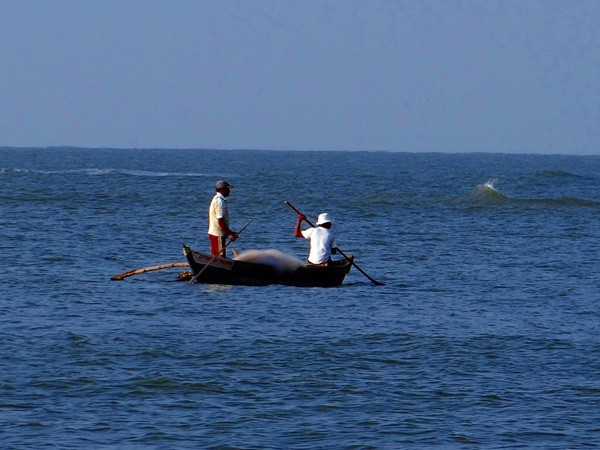Sardinian fishermen say ban on harvesting sea urchins spells ruin
Sea urchins have sharp thorny spines to ward off predators but now an island-wide ban on their harvesting in Sardinia is proving a thorn in the side of the fishermen whose livelihood depends on the culinary delicacy and who say they now face ruin. "We are disappointed, embittered by the regional government because they've made a choice that will be disastrous for us," said Michele Puddu, a fisherman and owner of the "Becca Ricci" open-air eatery on the waterfront.

Sea urchins have sharp thorny spines to ward off predators but now an island-wide ban on their harvesting in Sardinia is proving a thorn in the side of the fishermen whose livelihood depends on the culinary delicacy and who say they now face ruin.
"We are disappointed, embittered by the regional government because they've made a choice that will be disastrous for us," said Michele Puddu, a fisherman and owner of the "Becca Ricci" open-air eatery on the waterfront. Ricci is the Italian word for sea urchins. The orange core of the urchin, known as the roe, is eaten raw with lemon or as an ingredient in pasta sauces.
The island's environment minister, Gabriella Murgia, imposed the ban on Jan. 22, saying research showed that the urchin population had fallen to nearly zero in some areas. The fishermen say the real problem is that there are many illegal, unlicensed urchin catchers and also complain that the earlier establishment of many protected areas increased pressure on the populations of those still open.
"The fishermen are forced to concentrate in just a few areas," said Stefano Melis, a representative of a local urchin fishermen's consortium. 'NOT A GAME'
On one recent cold winter morning, just before the ban took effect, three fishermen went out on a speedboat to pluck some of their last urchins from the rocky seabed. "They want to take our jobs away. Look what we have to do in the morning, it's not a game to wake up and jump in the water," said Massimo Sarritzu, 45.
He put on his oxygen tank, made the sign of the cross, and jumped in. That day they harvested four fruit cases of urchins and nabbed a small octopus too. Marine scientist Ivan Guala tries to see both sides of the story - the plight of the hunted and the plight of the hunter.
Sea urchins feed on microalgae, a process that is essential for marine biodiversity. While their own survival is threatened by over-fishing, too many urchins would severely diminish the microalgae necessary for other marine life. "The challenge is finding a balance between these two somewhat conflicting aspects," said Guala.
"We hope to find a management model that does not have to rely on a total, indiscriminate ban but perhaps localized ones that take (varying urchin) populations into consideration." The government has promised compensation to the fishermen, some of whom are ex-convicts taking part in a rehabilitation project. But they said they were still awaiting details.
Salvatore Boi, 37, the pilot of the boat, said he would continue fishing, even if not for urchins. "A fisherman is born a fisherman and dies a fisherman," he said. "He can't change his profession overnight."
(This story has not been edited by Devdiscourse staff and is auto-generated from a syndicated feed.)
- READ MORE ON:
- Stefano
- Sardinia
- Gareth Jones
- Ricci
- Italian










